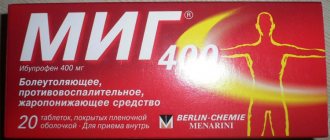Category: Vitamins and minerals
Calcium Chloride is a remedy for replenishing calcium deficiency in the body.
Replenishes the lack of calcium in the body - an important element that takes part in the activity of the myocardium, bone formation, blood clotting, and muscle contraction.
The drug reduces the permeability of the vascular wall and cells, prevents inflammation, increases resistance to infections, and enhances the release of epinephrine by the adrenal glands.
Calcium Chloride is available in the form of a solution for internal use and a solution for intravenous administration. When administered intravenously, calcium chloride has a diuretic effect and stimulates the sympathetic part of the nervous autonomic system.
To treat allergies, in addition to antihistamines, calcium chloride is also used as an additional remedy. It cleanses the blood of allergens, toxins, harmful substances, has a detoxification effect and helps reduce allergic manifestations.
In cosmetology, Calcium Chloride is used as part of facial peeling; it is suitable for mixed, normal and oily skin prone to acne and blackheads. Peeling will cleanse facial pores, reduce inflammation, dry out small pimples, and whiten the skin.
Price in pharmacies
Information about the price of Calcium Chloride in Russian pharmacies is taken from online pharmacies and may differ slightly from the price in your region.
You can buy the drug in Moscow pharmacies at the price: Calcium chloride 10% solution for injection 5 ml 10 ampoules - from 34 to 67 rubles, cost Calcium chloride solution 100 mg/ml 10 ml 10 pcs. – from 65 to 77 rubles.
Conditions for dispensing from pharmacies - without a prescription.
Store in a place protected from light at a temperature of 15 to 25 ºС. Shelf life: 5 years.
A list of analogues is presented below.
Magnesia
Indications:
Contraindications:
Application:
Many have heard this exact name of the drug. Its real name is magnesium sulfate. If it enters the body orally, it affects only the digestive tract. When administered intravenously or intramuscularly, a positive effect appears on the entire body. When the drug is administered intramuscularly or intravenously, it has a calming effect, relieves convulsions, and relaxes the walls of blood vessels.
When a large dose of drugs is administered, magnesia acts on the central nervous system and disrupts the connection between the brain and limbs. In addition, an overdose of the drug causes drowsiness and disruption of the respiratory center.
Magnesia normalizes blood pressure if it is elevated. If the blood pressure is normal, it will hardly drop after the drug is administered.
Magnesium dilates the arteries, thereby improving blood supply to the heart muscle and reducing the risk of thrombosis.
Side effects:
Side effects include facial flushing, vomiting, drop in blood pressure, and migraine-like pain.
Hot injections have many indications for use. But every drug also carries its own threat. Thus, calcium chloride and calcium gluconate can provoke a miscarriage, and magnesium, on the contrary, is prescribed for threats of miscarriage or premature birth. Incorrect administration of the same calcium chloride and gluconate can lead to irreparable consequences - tissue necrosis. Never self-medicate with hot injections. Improper administration of medications can even lead to death. Consult your doctor, study the contraindications, and then begin treatment. Be healthy.
April 18, 2014
It is difficult to overestimate the role of calcium in human development and life. Bone tissue consists of this macroelement; it is responsible for muscle contraction, blood clotting, and the activity of our nervous and hormonal systems. A lack of calcium in the body can cause serious metabolic problems. A chloride injection is an effective and proven way to solve this problem.
Why is Calcium Chloride prescribed?
The drug Calcium Chloride is prescribed in the following cases:
- with insufficient function of the parathyroid glands, accompanied by tetany or spasmophilia (a disease in children associated with a decrease in the content of calcium ions in the blood and alkalinization of the blood);
- with increased release of calcium from the body, which can occur with prolonged immobilization of patients;
- for allergic diseases (serum sickness, urticaria, angioedema, hay fever, etc.) and allergic complications associated with taking medications. The mechanism of the antiallergic effect is unclear; however, it should be noted that intravenous administration of calcium salts causes stimulation of the sympathetic nervous system and increased secretion of adrenaline by the adrenal glands;
- as a means of reducing vascular permeability in hemorrhagic vasculitis (hemorrhage due to inflammation of the walls of blood vessels), radiation sickness, inflammatory and exudative processes (release of protein-rich fluid from small vessels of tissue) - pneumonia (pneumonia), pleurisy (inflammation of the membrane covering lungs and lining the wall of the chest cavity), adnexitis (inflammation of the uterine appendages), endometritis (inflammation of the inner surface of the uterus), etc.;
- for skin diseases (itching, eczema, psoriasis, etc.). For parenchymal hepatitis (inflammation of liver tissue), toxic liver damage (damage to the liver by harmful substances), nephritis (inflammation of the kidney), eclampsia (severe form of late toxicosis of pregnancy), hyperkalemic form of paroxysmal myoplegia (paroxysmal / periodically occurring / paralysis occurring with an increase in the content of potassium in the blood);
- as a hemostatic agent for pulmonary, gastrointestinal, nasal, and uterine bleeding; in surgical practice, it is sometimes administered before surgery to increase blood clotting. However, there is no sufficiently reliable data on the hemostatic (hemostatic) effect of calcium salts introduced into the body from the outside; calcium ions are necessary for blood clotting, but the amount of calcium usually contained in the blood plasma exceeds the amount required to convert prothrombin into thrombin (one of the blood clotting factors);
- as an antidote for poisoning with magnesium salts (see magnesium sulfate), oxalic acid and its soluble salts, as well as soluble salts of fluoric acid (when interacting with calcium chloride, non-dissociating / non-disintegrating / and non-toxic oxalate and calcium fluoride are formed);
- the drug is also used in combination with other methods and means to stimulate labor.
Reviews from patients and doctors
An excellent product with a wide range of effects. Used for allergies, nephritis, hepatitis, removes toxic substances from the body. I prescribe this drug to my patients without fear that it will cause side effects. Mishchenko I.I., doctor
Somehow I contracted an allergy - I worked for a long time in the archives, inhaled dust, etc. I called a doctor to my house. I thought the treatment would take a long time, but everything was done with one intravenous injection of calcium chloride. Excellent product, I recommend it to everyone. Allergy symptoms disappeared literally before our eyes! Ivan
I recommend peeling to everyone! Apply the product to your face and wait until it dries completely. Repeat the procedure up to five times. After this, with soapy fingers, you begin to wash off the surface of your face, as if rolling the skin into balls. The method is excellent, but it is best to do it before bed. Ilona
The peeling product is excellent, it really helps. My husband was also given a calcium injection for allergies. True, they administered it slowly, and then the doctor monitored the patient’s condition so that his health did not worsen. Svetlana
Instructions for use of Calcium Chloride, doses and rules
With an intravenous injection of Calcium Chloride, the solution is administered slowly, 6-8 drops per minute. Usually 1-3 ampoules are administered, diluting the 10% solution with 100-200 milliliters of sodium chloride or 5% dextrose solution.
The solution is taken orally after meals 2-3 times a day. Most often, a 5 or 10 percent solution is taken. Standard dosages for adults, according to the instructions for use of Calcium Chloride, are from 10 to 15 ml. means, children are recommended to take no more than 5-10 ml.
In cosmetology, calcium chloride is used for peeling oily skin. During the peeling procedure, the drug is applied to the facial skin twice and wait until it dries completely. Then the face is cleaned with soap and water. This removes dead cells from the skin. They roll into balls and are easily removed from the surface of the skin. It is necessary to continue washing as long as lumps remain on the skin.
The frequency of using calcium chloride on the face depends on your skin type. For women with dry skin, it is recommended to repeat the procedure no more than once every 1.5-2 months. If the skin is of normal type, the “rolling” can be done every month. If the skin is prone to oiliness, the procedure can be carried out every 2 weeks.
Most women leave very good reviews about peeling with calcium chloride, claiming that for a cheap price, the procedure gives simply stunning results: the skin is cleared of blackheads and becomes dull for a long time, its texture is noticeably evened out, and the pores are tightened.
Important information
Do not administer subcutaneously or intramuscularly due to severe tissue irritation and possible development of necrosis.
Enhances the effect of antihistamines.
Use during pregnancy and lactation
There have been no adequate and strictly controlled studies regarding the effectiveness and safety of the drug in pregnant women. Therefore, during pregnancy, the drug can be used only when the benefits to the mother’s body outweigh the risks to the fetus.
Calcium chloride can be used during breastfeeding.
Calcium chloride intravenously for bleeding
Calcium chloride is an inexpensive (price 30-120 rubles) over-the-counter drug. The medicine is suitable for intravenous administration, it can also be used locally using electrophoresis (administered via electric current). The drug is widely used in modern medicine to treat many diseases.
Characteristics of calcium chloride
Chlorinated calcium is an odorless substance and has a bitter-salty taste. The product has good solubility in water. When exposed to air, calcium crystals begin to blur. Melting occurs at a temperature of 34 degrees.
The drug is sold in the form of a powder, which is packaged in glass containers, the stopper is hermetically sealed so that the substance does not suffer from contact with air. For medical purposes, the medicine is sold in the form of a solution placed in ampoules, dosages of 5 and 10 milliliters. 1 milliliter of solution contains 0.1 grams of calcium.
The drug has no analogues and has an economical price.
Lack of calcium
Insufficient calcium in the body leads to health problems. This substance affects the functioning of basic systems. Calcium ions improve performance:
- of cardio-vascular system;
- central and peripheral nervous system;
- circulatory systems;
- promote muscle contraction.
If the plasma contains an insufficient amount of calcium, this indicates pathological processes occurring in the body. An insufficient amount of calcium leads to severe tetany (tension, numbness, cramp). To cope with the malaise, you need to drink a medicine containing calcium.
In the blood, calcium is present in ionized form. When administered artificially, it is deposited in bone tissue. Excess substances are excreted by the kidneys or through the intestines.
Purpose of the drug
The function of calcium chloride is to restore the supply of the substance in the body. This element is necessary for the successful functioning of the myocardium, it is involved in the formation of bone tissue, and also helps improve the process of blood clotting. The drug has the following positive effects on health:
- strengthens the walls of blood vessels and cells;
- protects against infections;
- strengthening the immune system;
- increases the production of epinephrine in the adrenal glands.
Calcium ions improve the conduction activity of nerve impulses, strengthen bone tissue and increase the contractility of the heart muscles.
Calcium chloride is produced in the form of a transparent liquid substance, which is packaged in ampoules. The remedy helps to cure the following:
- allergic reaction to medications;
- lack of calcium, causing osteoporosis, which is most pronounced during the growth period of the body;
- pregnancy and lactation;
- therapy of bronchial asthma;
- angina;
- insufficient activity of the parathyroid glands;
- tuberous sclerosis;
- hives;
- hay fever;
- pulmonary edema due to toxins;
- radiation sickness;
- serious kidney problems;
- psoriasis;
- lichen in humans (lichen lichen, ringworm, lichen planus, etc.);
- and other human skin diseases.
Calcium chloride has a mild diuretic effect. The medicine promotes blood clotting in the presence of bleeding. This drug is the best hemostatic agent at the moment. Using this drug you can relieve the symptoms of poisoning. The drug helps eliminate inflammatory and exudative phenomena accompanying:
In gynecology, this medicine is used to combat endometritis that occurs in the acute stage. Indications for use: uterine bleeding. The drug is also prescribed to stimulate labor.
Despite the fact that the medicine is given freely, without a doctor’s prescription, you cannot use the medicine yourself at home. Otherwise, very serious consequences may arise.
But as a cosmetic product - masks and treasures prepared at home, the drug is quite suitable; it can also be added to shampoos and hair conditioners. The drug is suitable for cleansing the skin of dead cells.
After the procedure, it is not recommended to be in direct sunlight for a couple of days to avoid skin burns.
For children, the drug is prescribed exclusively for oral administration. For a child, the injection option of administering the medicine is not suitable.
Instructions for use
The instructions for use state that the drug “Calcium Chloride” is intended for intravenous administration only. But there are other methods of taking the drug. Before being treated with the drug, you should read the instructions for oral use. The medicine can be used in the following ways:
- intravenously , jet injection, infuse up to 5 ml of the product over 5 minutes;
- drip injection - calcium chloride is diluted with a 5% glucose solution or saline to prevent bradycardia, the drug is administered slowly at a rate of 6 drops per minute, before use the solution is heated until it reaches body temperature;
- the solution is used for electrophoresis.
Instructions for internal use:
calcium chloride can be taken orally after meals, but you need to monitor the dosage - one dose should not be more than 15 ml, the child dose is in the range from 5 to 10 ml, while taking the drug the patient may experience heartburn, flatulence and stomach ache ;
Among other things, the drug is used locally to treat wounds; it can also be used to wash the mucous tissues of the eye.
Calcium chloride is not administered intramuscularly; this has a negative impact on health and causes various types of irritation and tissue necrosis. Rapid administration of the drug into a vein is also unacceptable; this can cause disruption of the cardiovascular system, including cardiac arrest.
As the medicine enters the bloodstream, the person feels hot and a chalky taste appears in the mouth. A decrease in blood pressure is possible, the patient may feel sick, and even fainting is possible. No more than 3 ampoules are administered at a time. After the injection, the patient should remain under the supervision of a doctor for about half an hour.
Self-treatment with this drug at home is excluded. This can lead to serious consequences and even cost a person his life.
Treatment with the drug is carried out under the control of calcium levels in the blood. During the period of therapy, you should refrain from driving vehicles, and also avoid interaction with dangerous mechanisms.
Calcium gluconate in cosmetology (skin peeling)
Calcium gluconate has found wide application in cosmetology. It is used to exfoliate the skin. To cleanse the face of dead cells, the product is applied to the surface of the facial skin; the area around the eyes does not need to be treated.
After the drug is distributed over the skin, you should wait until it dries. Then the procedure is carried out again and the product is removed with a damp cotton pad; dead cells will roll into balls and easily come off the skin.
After the session, the face should be thoroughly rinsed with warm water.
Before you start peeling, you need to check for an allergic reaction. To do this, apply a few drops of the medicine to your hand in the place where the skin is thinner. After a few minutes the result is checked. If an allergic reaction occurs, the peeling procedure should be stopped.
Side effects
When calcium chloride is taken orally, pain may appear primarily in the pancreas, but the pain can also be localized in another area. Once in the stomach, calcium chloride provokes heartburn.
Intravenous administration is accompanied by an abnormal heart rhythm. A chaotic heartbeat appears. This effect often occurs if the rate of drug administration has been exceeded.
Calcium chloride is a unique medicine. The drug helps to cope with various diseases. In order to prevent complications, you need to know how to take this medicine.
source
Features of application
Before using the drug, read the sections of the instructions for use about contraindications, possible side effects and other important information.
Side Effects of Calcium Chloride
Instructions for use warn of the possibility of side effects of the drug Calcium Chloride:
- feeling of heat;
- bradycardia;
- with rapid administration - ventricular fibrillation.
Contraindications
The use of Calcium Chloride is contraindicated for the following diseases or conditions:
- tendency to thrombosis;
- severe atherosclerosis;
- increased calcium levels in the blood.
Overdose
In case of overdose, increased side effects, the appearance of tachycardia and depression of cardiac activity are possible.
Treatment is symptomatic.
Magnesia
It is done intramuscularly and sometimes intravenously. The medicine is injected slowly, usually into the buttocks because this is the area of the body with the most muscle mass. The upper quadrant is most often used.
Magnesia is used for pregnant women who are at risk of miscarriage. And also used:
- to prevent cramps and relax the walls of blood vessels;
- for hypertension, to reduce high blood pressure;
- to improve blood supply by dilating arteries.
After administering the injection, it is necessary to remain in a horizontal position for some time so that the resulting dose of magnesium does not stagnate. Some people cannot bear its effects on their own; they are offered painkillers.
An overdose of the drug can lead to disruptions in the functioning of the respiratory system and nervous system. Drowsiness and weakness often appear.
There are many indications for the use of hot injections, but each of them acts differently. Calcium chloride igluconate, if dosed incorrectly, can cause premature birth, while magnesium, on the contrary, is prescribed to prevent miscarriage. Naturally, such serious injections should be carried out only by specialists; self-medication is prohibited. Any overdose can have a detrimental effect on health.
Is it possible to prescribe hot injections to children to replenish calcium? Doctor Komarovsky answers.
Many people were prescribed hot injections during a cold or allergic reaction. Those who have at least once experienced the effect of this drug will remember it forever. At first it warms in the mouth, then the warmth spreads throughout the body. It seems that it is now clear where this name comes from. But what is the temperature of this drug? Do you think they warmed him up before the injection? But no.
A hot injection is the intravenous administration of drugs that contain organic and inorganic salts. Why do I feel feverish during the administration of the medicine? Everything is very simple. During the administration of drugs, blood vessels enlarge, and the person feels warmth that spreads throughout the body from top to bottom. In this case, the temperature of the medicine does not exceed the temperature of a person.
List of Calcium Chloride analogues
If it is necessary to replace the drug, there are two options - choosing another medication with the same active substance or a drug with a similar effect, but a different active substance.
Analogues of Calcium Chloride, list of drugs:
- Glyuksil,
- Potassium chloride,
- Xylate,
- Lactoxyl,
- Magnesium sulfate,
- Sodium bicarbonate,
- Soda Buffer,
- Sodium chloride,
- Plerigo,
- Reamberin.
When choosing a replacement, it is important to understand that the price, instructions for use and reviews of Calcium Chloride do not apply to analogues. Before replacing, you must obtain the approval of your doctor and do not replace the drug yourself.
Most of the reviews left about the drug are reviews about the cosmetic use of Calcium Chloride for facial cleansing. Most women call it the best peeling product at home: despite its cheapness, it perfectly removes blackheads and rejuvenates the skin.
…
Contraindications
The use of calcium chloride is contraindicated in case of hypersensitivity to it, as well as in the following cases:
- Sarcoidosis;
- Severe chronic renal failure;
- Hypercalcemia;
- Ventricular fibrillation;
- Hypercalciuria;
- Pregnancy and during breastfeeding;
- Urolithiasis;
- Simultaneous administration of cardiac glycosides.
The drug is prescribed with caution to patients with mild to moderate chronic renal failure, electrolyte imbalance, dehydration, heart and kidney disease, cor pulmonale, respiratory acidosis and respiratory failure.
In what cases are hot injections into a vein indicated?
What “responsibilities” does calcium perform when it enters the human body as a result of a hot injection?
- It is essential for the heart to function normally.
- Provides muscle function.
- Participates in the delivery of nerve signals to the brain.
- Supports good blood clotting.
- It is a component that forms bone tissue.
Given such a wide list of functions, there are quite a lot of indications for prescribing a hot injection into a vein. These include:
- calcium deficiency caused by insufficient dietary intake or conditions associated with blood loss;
- increased body need for calcium during pregnancy;
- antishock therapy (as one of the components of resuscitation measures);
- anti-inflammatory treatment;
- relieving allergic symptoms and improving the condition of blood vessels.
Calcium chloride solution is also often used as an additional agent that improves the results of treatment of various types of colic (renal, biliary and intestinal).
Side effects of “hot” injections
Many patients are afraid to take calcium chloride injections because they are not sure that it is safe. In fact, if you strictly follow the instructions and take into account contraindications, then no unwanted reactions will occur.
But side effects may still occur in some cases. These include not very pleasant sensations - burning in the mouth and throughout the body. Also, after the injection, blood pressure sometimes decreases. If the product gets into the muscle, it can lead to severe irritation and necrosis.
If the drug is administered too quickly or combined in one syringe with other medications, the heart rate may increase, and this sometimes leads to cardiac arrest.








